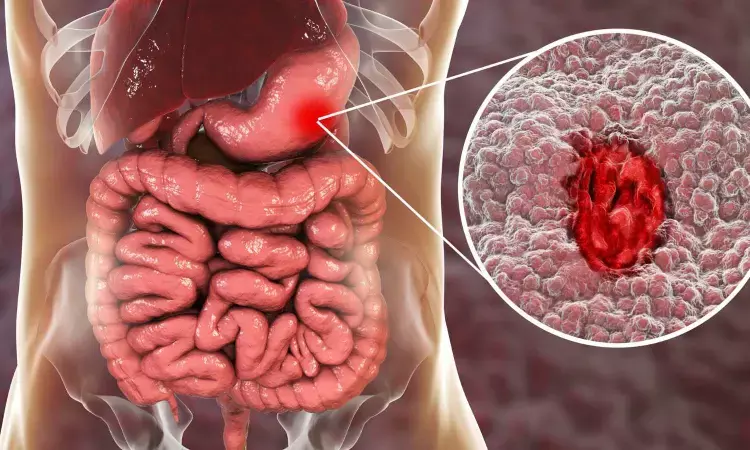- Home
- Medical news & Guidelines
- Anesthesiology
- Cardiology and CTVS
- Critical Care
- Dentistry
- Dermatology
- Diabetes and Endocrinology
- ENT
- Gastroenterology
- Medicine
- Nephrology
- Neurology
- Obstretics-Gynaecology
- Oncology
- Ophthalmology
- Orthopaedics
- Pediatrics-Neonatology
- Psychiatry
- Pulmonology
- Radiology
- Surgery
- Urology
- Laboratory Medicine
- Diet
- Nursing
- Paramedical
- Physiotherapy
- Health news
- Fact Check
- Bone Health Fact Check
- Brain Health Fact Check
- Cancer Related Fact Check
- Child Care Fact Check
- Dental and oral health fact check
- Diabetes and metabolic health fact check
- Diet and Nutrition Fact Check
- Eye and ENT Care Fact Check
- Fitness fact check
- Gut health fact check
- Heart health fact check
- Kidney health fact check
- Medical education fact check
- Men's health fact check
- Respiratory fact check
- Skin and hair care fact check
- Vaccine and Immunization fact check
- Women's health fact check
- AYUSH
- State News
- Andaman and Nicobar Islands
- Andhra Pradesh
- Arunachal Pradesh
- Assam
- Bihar
- Chandigarh
- Chattisgarh
- Dadra and Nagar Haveli
- Daman and Diu
- Delhi
- Goa
- Gujarat
- Haryana
- Himachal Pradesh
- Jammu & Kashmir
- Jharkhand
- Karnataka
- Kerala
- Ladakh
- Lakshadweep
- Madhya Pradesh
- Maharashtra
- Manipur
- Meghalaya
- Mizoram
- Nagaland
- Odisha
- Puducherry
- Punjab
- Rajasthan
- Sikkim
- Tamil Nadu
- Telangana
- Tripura
- Uttar Pradesh
- Uttrakhand
- West Bengal
- Medical Education
- Industry
Upper Gastrointestinal Mucosal Damage may increase Risk of Parkinson's Disease: JAMA

A recent study by the Mass General Brigham network revealed a significant association between upper gastrointestinal mucosal damage (MD) and an increased risk of developing Parkinson’s disease (PD). The findings published in the Journal of American Medical Association adds to the gut-first hypothesis of PD, which suggests that gastrointestinal factors could be early triggers of the neurodegenerative disorder.
The retrospective cohort study examined a total of 9,350 patients who underwent upper endoscopy with biopsy between January 2000 and December 2005. None of the participants had a prior history of PD. They were drawn from the greater Boston area and the final follow-up assessments were completed by July 31, 2023.
The patients were divided into 2 groups where one had mucosal damage and the other were without. MD was identified based on endoscopic findings or pathology reports, which included erosions, esophagitis, ulcers, or peptic injury. Each patient with MD was matched 1:3 to a control patient without MD based on factors like age, sex, and the date of their initial endoscopy.
The study found that individuals with upper gastrointestinal MD had a significantly higher risk of developing Parkinson's disease when compared to the ones without MD. The incident rate ratio (IRR) for PD was 4.15 which indicates that patients with MD were more than four times as likely to develop PD than the individuals without it. Even after adjusting for other covariates such as age, sex, and medical history, the association remained significant, with a hazard ratio (HR) of 1.76.
Several other factors were also found to increase the likelihood of PD diagnosis, including older age, constipation, dysphagia (difficulty swallowing), and higher scores on the Charlson-Deyo Comorbidity Index, which measures overall health risk. These factors (constipation and dysphagia) have been previously linked to early symptoms of PD which further strengthens the connection between gastrointestinal issues and the disease.
The outcomes of this study suggests that patients with upper gastrointestinal mucosal damage with peptic ulcers or chronic esophagitis, should be monitored more closely for signs of Parkinson’s disease. The early detection of PD in patients with gastrointestinal disorders could help in managing the disease progression more effectively. Overall, this research highlighted the importance of a multidisciplinary approach in understanding Parkinson’s disease, with a focus on gastrointestinal health.
Source:
Chang, J. J., Kulkarni, S., & Pasricha, T. S. (2024). Upper Gastrointestinal Mucosal Damage and Subsequent Risk of Parkinson Disease. In JAMA Network Open (Vol. 7, Issue 9, p. e2431949). American Medical Association (AMA). https://doi.org/10.1001/jamanetworkopen.2024.31949
Neuroscience Masters graduate
Jacinthlyn Sylvia, a Neuroscience Master's graduate from Chennai has worked extensively in deciphering the neurobiology of cognition and motor control in aging. She also has spread-out exposure to Neurosurgery from her Bachelor’s. She is currently involved in active Neuro-Oncology research. She is an upcoming neuroscientist with a fiery passion for writing. Her news cover at Medical Dialogues feature recent discoveries and updates from the healthcare and biomedical research fields. She can be reached at editorial@medicaldialogues.in
Dr Kamal Kant Kohli-MBBS, DTCD- a chest specialist with more than 30 years of practice and a flair for writing clinical articles, Dr Kamal Kant Kohli joined Medical Dialogues as a Chief Editor of Medical News. Besides writing articles, as an editor, he proofreads and verifies all the medical content published on Medical Dialogues including those coming from journals, studies,medical conferences,guidelines etc. Email: drkohli@medicaldialogues.in. Contact no. 011-43720751


